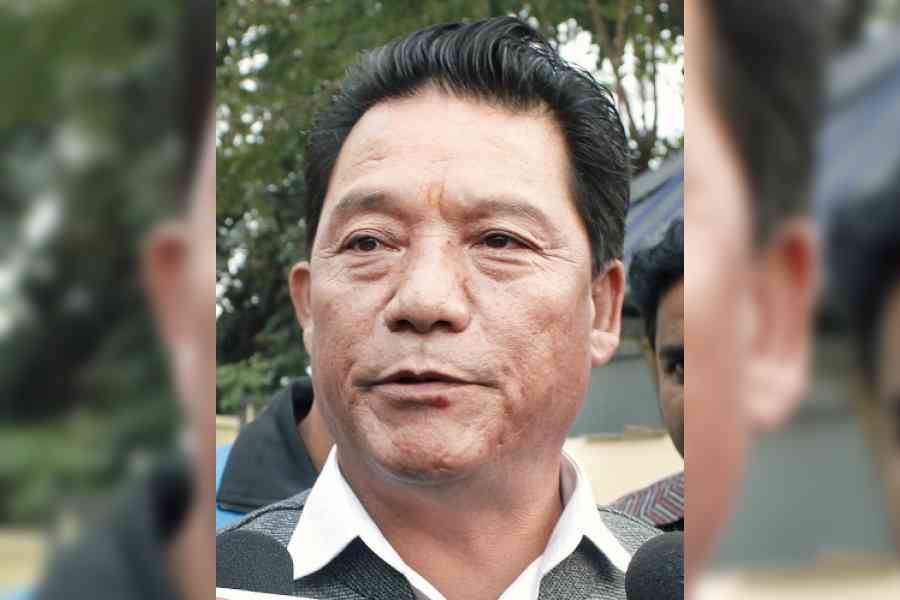The Centre is looking at replacing the Gorkhaland Territorial Administration (GTA) with an administrative set-up under the Sixth Schedule of the Constitution, Bimal Gurung, the president of the Gorkha Janmukti Morcha and one of the leaders from Darjeeling to be invited to the tripartite talks in Delhi on April 3, said on Sunday.
Following the meeting convened by the Union home ministry, participating hill leaders, mostly aligned with the BJP, had not divulged much about the intentions of the Centre.
Gurung, while addressing his supporters in Kalimpong on Sunday, said: “A new set-up will be implemented in the hills by the Centre. This will be a constitutional body under the Sixth Schedule. However, the 11 Gorkha communities will be made tribal (given the Scheduled Tribe tag) before the area gets Sixth Schedule status similar to the Bodoland Territorial Council.”
The Sixth Schedule is a provision to administer the tribal population in certain Northeastern states.
Subash Ghisingh, the founding president of Gorkha National Liberation Front (GNLF), had also signed a memorandum of settlement with the Bengal government and Centre for bringing the hills under the Sixth Schedule of the Constitution.
However, the development was opposed by many in the hills, including Gurung, as the hills do not have a tribal-majority population. The tribal population in the hills currently stands around 32 per cent.
However, granting tribal status to the 11 Gorkha communities would push the tribal population to more than 80 per cent.
After agitating for a state for the Gorkhas since 2007, Gurung finally settled for the GTA in 2012.
“The GTA was powerful but the state did not transfer powers of functioning (autonomy) to the body,” said Gurung.
The April 3 meeting was chaired by Union minister of state for home affairs,
Nityanand Rai.
The Darjeeling delegation, led by BJP MP Raju Bista, comprised Darjeeling MLA Neeraj Zimba, Kalchini MLA Bishal Lama and leaders from BJP allies like the GNLF, the CPRM, Gorkha Janmukti Morcha, Gorkhaland Rajya Nirmal Morcha and SUMETI Mukti Morcha.
Following the meeting, the ministry of home affairs issued a media release on “tripartite meeting to resolve issues related to Gorkhas”.
It stated that the minister listened to the representatives “attentively and assured” them that the “all-round development and security of the region are among the priorities” of the Centre.
The Darjeeling region borders Nepal, Bhutan and Bangladesh.
“He (minister of state for home affairs) further assured that the Central Government would resolve issues of Gorkhas, within the constitutional framework, in coordination with the Government of West Bengal,” the statement read.
The Bengal government, however, did not send its representative to this meeting.










